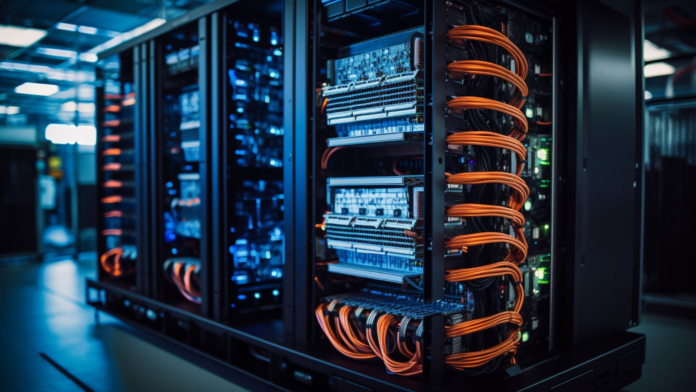The European Union (EU) has initiated a plan to bolster homegrown AI startups by granting them access to the processing capabilities of the bloc’s supercomputers. This initiative, announced in September and initiated last month, saw France’s Mistral AI engaging in an early pilot phase, marking the EU’s stride toward supporting AI innovation. However, it surfaced that the program requires dedicated support tailored for AI startups to harness the potential of the EU’s high-performance computing effectively.
According to an EU official speaking at a recent press briefing, the key learning from the early stages of the program is the necessity not only to grant access but also to equip AI startups with the necessary skills, knowledge, and experience to optimize the utilization of the high-performance computing facilities available across the EU’s supercomputing centers.
The blueprint involves establishing “centers of excellence” aimed at fostering the development of specialized AI algorithms compatible with the EU’s supercomputers, representing a strategic move to support the burgeoning AI ecosystem.
AI startups typically rely on compute hardware provided by U.S. hyperscalers for model training rather than tapping into the processing power offered by supercomputers. Recognizing this, the EU is augmenting the high-performance computing access program with additional support mechanisms. The goal is to assist SMEs in understanding how to best utilize the supercomputers, parallelize algorithms, and optimize AI models.
The EU Commission foresees a significant uptick in such approaches by 2024, emphasizing that AI now stands as a strategic priority for the Union. Besides, in addition to the AI Act, the Commission aims to provide substantial innovation capacity for SMEs and startups to effectively leverage the EU’s computational infrastructure, fostering the creation of safe, trustworthy, and ethical AI algorithms on an international scale.
To facilitate this, plans are underway to establish an “AI support center,” featuring a specialized track tailored for SMEs and startups. The EU acknowledges the AI community’s expertise in GPU utilization but recognizes the need to assist them in harnessing the potential of supercomputers.
Over the past five years, the EU has significantly augmented its investment in supercomputers, expanding its hardware to a network of eight machines across the region. These machines will be interconnected via terabit networks, creating a federated supercomputing resource accessible via the cloud, catering to users throughout Europe.
Anticipated applications atop the EU’s high-performance computing hardware include simulating Earth’s ecosystems to model climate change and weather systems (Destination Earth) and developing a digital twin of the human body for advancing medical science. The recent strategic emphasis on AI startups utilizing supercomputing resources follows the EU president’s announcement of the compute access for AI model training program this fall.
Last month, the EU introduced a “Large AI grand challenge,” a competition targeting European AI startups experienced in large-scale AI models. The initiative aims to select promising startups for access to supercomputing resources and offers a prize pool of €1 million for winners, underlining the EU’s commitment to fostering innovation.
While it’s still early days for the EU’s “supercompute for AI” program, the Commission envisions that by empowering AI startups to leverage high-performance computing, it will pave the way for a competitive edge within the local AI ecosystem, rivaling U.S. AI giants.
The EU’s strategy includes procuring more dedicated AI supercomputing machines focused on accelerators, aiming to bolster AI model training efforts. Whether this support strategy aligns with member states’ ambitions to cultivate national AI champions remains to be seen. However, the initial participation of Mistral in the EU’s supercomputing access program signals a promising step toward fostering the EU’s AI landscape.











